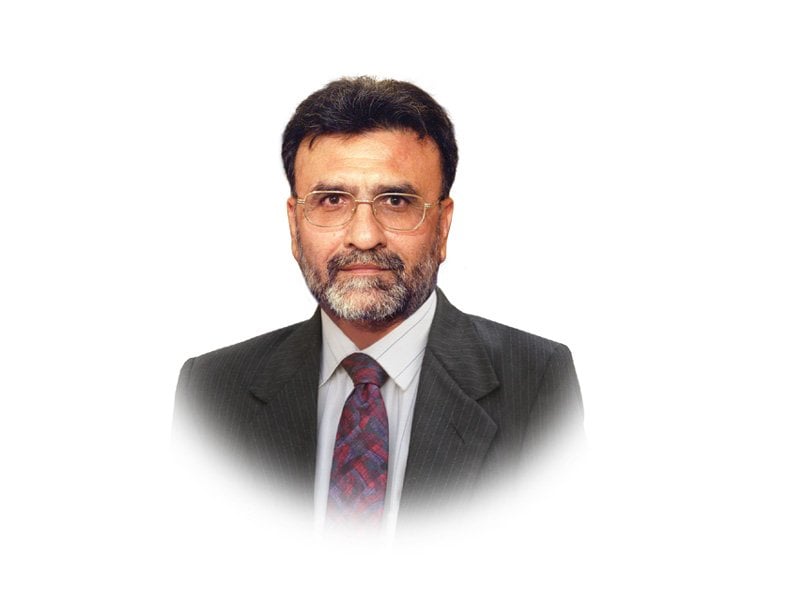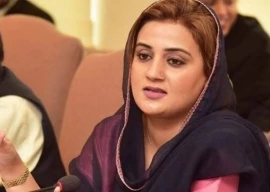
“No taxation without representation” was the slogan that eventually produced the idea of parliamentary democracy. Although groomed under the praetorian wings of General Zia in the 1980s, Nawaz Sharif has ended up pretending as the one and only democrat on this side of the Suez. Ishaq Dar had certainly dented his image in this regard by slyly enforcing one per cent increase in general sales tax while presenting the first budget of the third Nawaz government.
The opposition and media felt cheated with enforcement of this taxation without any parliamentary approval. If the PML-N really cared for its image, it should have voluntarily withdrawn the increase. Instead, the Finance Minister began fiercely defending it and doing so kept referring to an essentially bad law that empowers any government to go for “provisional taxation.” He should not feel surprised when the Supreme Court took suo motu notice of his audacious act and finally scrapped it through a short order, specifically on a day when Ishaq Dar was to wind up a seven-day long general discussion on budgetary proposals.
I am willing to concede that Dar might have been thinking to withdraw the increase himself during his concluding speech and the Supreme Court seems to have stolen the people-pleasing initiative from him. That will yet not stop me from recalling that throughout five years of the previous government, the PML-N assiduously promoted the habit of approaching the Supreme Court whenever failing to check the ruling coalition by fighting against it in parliament. Nawaz and his comrades also remained the most shrieking cheerleaders of various suo motu actions of the Supreme Court.
Friday the roles seemed to have been reversed. Mostly led by the spirited first-timers to an assembly from the PTI benches, the combined opposition did not let the Speaker move on with the day’s business. They demanded that Ishaq Dar should first come to the house to explain about how he took the Supreme Court’s decision on GST. Poor Dar, meantime, was sweating in the senate to explain his position on the same subject and the Speaker was not willing to adjourn the sitting and wait for him.
In this heat of point scoring, Achakzai took the floor to stress that notwithstanding the good or bad decisions by a particular government, it was but an elected parliament that must check and force correction of them. “No other organ of the state should try to take the space reserved for a sovereign parliament,” he suggested passionately. The PTI legislators failed to get his message. Only the members sitting on PPP benches could empathize with him, and they endorsed his suggestion with loud desk thumping.
From the day one Nawaz Sharif’s election as the prime minister by an assembly elected on May 11, 2013, I have been dropping heavy hints to prepare you for tensions between the PML-N government and the apex court. Zahid Hamid had already informed the prime minister that he wanted to quit as the law minister for his role in imposition of “the second martial law” by General Musharraf on November 3, 2007; the same had been questioned in the Supreme Court. Now we have seen scuttling of the flight of another minister of the same government by the apex court.
Although Zahid Hamid meekly told the house that the government had no choice but to bow before the Supreme Court’s decision and “humble submission to court’s orders” was also faked by Ishaq Dar in the senate, I am keeping my fingers crossed. The accumulated years of keenly watching the highs and lows of Nawaz Sharif’s political career since the early 1990s, have furnished some keys to understand the mindset of this “tiger from Lahore”.
Whenever in power, Nawaz Sharif wants to deliver and deliver in haste. He hates procedural and legalistic hurdles placed on his fast track to mission accomplished.
The sagacious Achakzai was not person-specific, however. He is a diehard democrat obsessively believing in the supremacy of an elected parliament. As a fervent political worker, he could instinctively see the brewing tensions between Nawaz Sharif and the apex court, but preferred to define them in a broader context. Journalists, however, earn their living by reporting on the here and now and most of us do feel excited with the possibilities of breaking news in days to come. Things for sure are never dull in Pakistan. We always live in “interesting times” that Chinese shun as the bad omen.
Published in The Express Tribune, June 22nd, 2013.

1722421515-0/BeFunky-collage-(19)1722421515-0-165x106.webp)



1732103737-0/Copy-of-Untitled-(55)1732103737-0-270x192.webp)


1726722687-0/Express-Tribune-Web-(9)1726722687-0-270x192.webp)








COMMENTS
Comments are moderated and generally will be posted if they are on-topic and not abusive.
For more information, please see our Comments FAQ